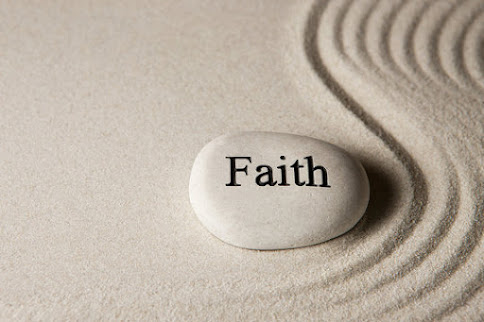In my job, I encounter many people who are just "broken." In some cases this is because they are facing difficult diseases or trying circumstances of some kind, and we in the church attempt to surround them with prayer, support, and acceptance, all tempered by genuine love. Occasionally we are in a position to provide intervention or aid in some tangible fashion, beyond emotional, moral, and spiritual support. As a pastor, it always feels "good" to be able to "do something" to help others. Sometimes people ask for help that we are not able to provide, and that feels so empty and unsatisfying.
There is another kind of brokenness, though, and it seems to be on the rise in our culture. Think: something is actually "broken." Personal and family dysfunction is everywhere. Whether it is in the police record of the daily newspaper, taking prayer requests from parishioners, or just hearing stories from the "victims" who come into my office, it seems everywhere I turn I'm seeing this kind of "brokenness." Many people just seem to be walking their lives into a buzz saw. They are abusing drugs and/or alcohol, hooking up with chronic abusers (or are abusers themselves), are bringing children into surroundings that probably wouldn't adequately support pets, and have "burned their bridges" from any kind of education or training that could result in decent employment. They are simply "broken" like an old toy, and their--or other's--attempts to "super glue" life back together are fruitless. They have become a kind of "black hole" of human suffering and need.
I so don't want to become negative or defeatist about these people, but I confess that at my age that is a threatening possibility. It is often hard to be fully available to or compassionate toward some "broken" folk when I have seen others make disciplined and systemic changes to their lifestyle, get the treatment they need, and slowly begin regaining a toe-hold on a "normal" life. There is such a desire to "fix" the problems that led to the dysfunction in the first place, but that is rarely possible or even welcomed by the person with the presenting need. So we caregivers, counselors, and clergy do our best "at the edges," offering the help we can and trying to soothe the wounds and pains of brokenness. But without the "fix," we fear we will see these same people again, with the same needs, and with the same hopeless outlook.
Now, some of you of strong faith will say, "Just trust God to transform these people, save their souls, and fix their problems." I have to say that this just doesn't work on so many levels. Barring a "Damascus Road" conversion experience, people have to open their hearts and minds to God's transforming power, and even then, most "transformations" are long, slow, and a constant work-in-progress. Each experience requires discipline on the part of the object of the transformation, and support and mentoring from those around them. Getting truly "broken" people to square-one on this is two-thirds of the "battle." And even when they try, they are just one slip from the abyss of dysfunction that constantly threatens. Overall, the problem is well described by the old adage: "You can't help someone who doesn't want to be helped." Even Jesus asked persons: "What do you want me to do for you?" They had to voice their desire to be healed.
I think I'm going to encourage the church I serve to put more time and energy into children's ministry. Maybe if we can lovingly convince these kids to not go DOWN that road in the first place, we can save them from a miserable life. I know from experience, however, that the influence of their parent(s) holds more sway with them than what we do. So I guess I would say to parents: THINK OF WHAT YOU ARE DOING when you continue in your own dysfunction or otherwise behave selfishly and foolishly--you are modeling this for your children, and they will too often follow in your footsteps. Someone, somewhere has to break the chain of dysfunction in a family. Maybe that is you!
I bet it really pains God to see the self-inflicted suffering on the part of so many of his people. I also bet God is distressed by the continual hand-wringing and lamenting on the part of those of us who want to help, but see our attempts to do so get sucked into the aforementioned abyss, thus having little impact. I think we need to pray more for the people in the police blotter, and for the adolescent victims of "broken" parents and shattered homes. Sure, we need to be ready to act when the opportunity presents itself, but a supernatural intervention is always welcome, and in some cases essential. Something to think about...Shalom, my friends.
P.R.O.D. blog is my way of keeping a voice in the midst of the channel noise, and to keep speaking after retiring from the Christian pulpit after 36 years of ministry in the United Methodist Church.
Wednesday, September 22, 2010
Subscribe to:
Posts (Atom)
Faith, By Any Other Name
Faith, By Any Other Name 1 John 3:1-7 3:1 See what love the Father has given us, that we should be called children of God; and that is w...

-
When Family Breaks Your Heart Romans 9:1-5 9:1 I am speaking the truth in Christ--I am not lying; my conscience confirms it by the Holy Sp...
-
Perish the Rescuing… 2 Corinthians 4:3-6 4:3 And even if our gospel is veiled, it is veiled to those who are perishing. 4:4 In their cas...
-
The Ten Suggestions…Really Exodus 20:1-4, 7-9, 12-20 20:1 Then God spoke all these words: 20:2 I am the LORD your God, who brought you o...


